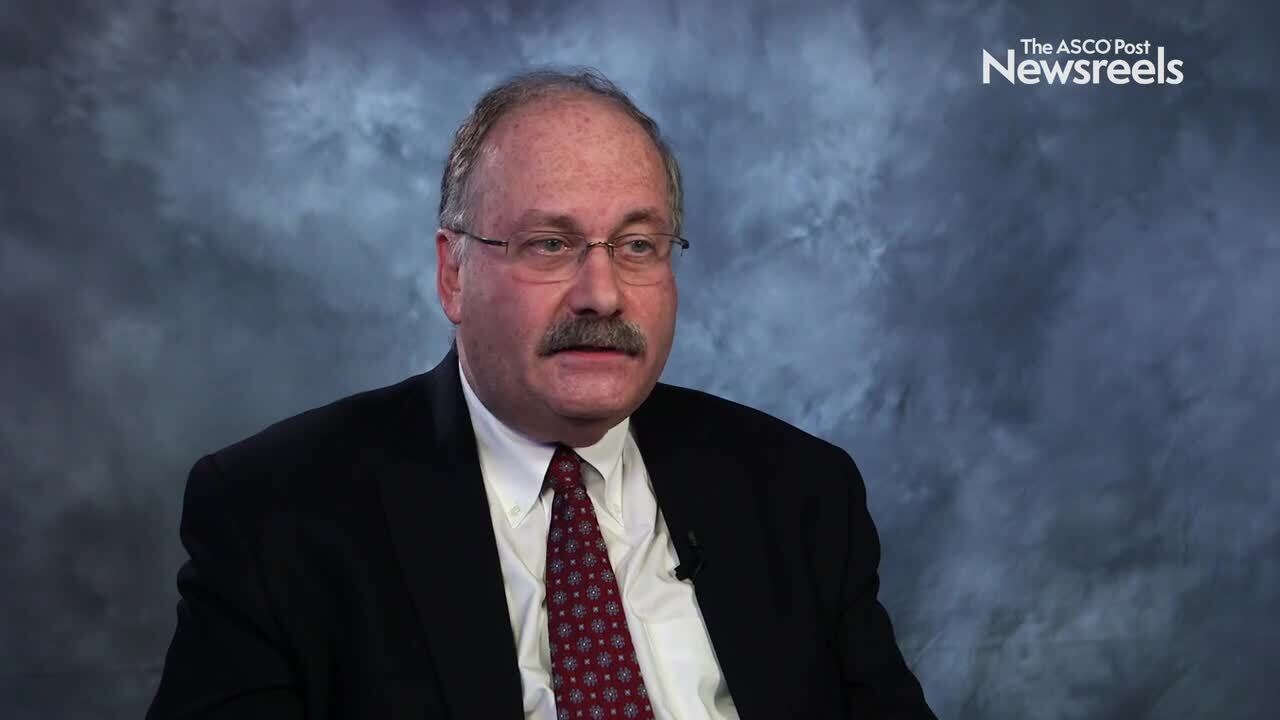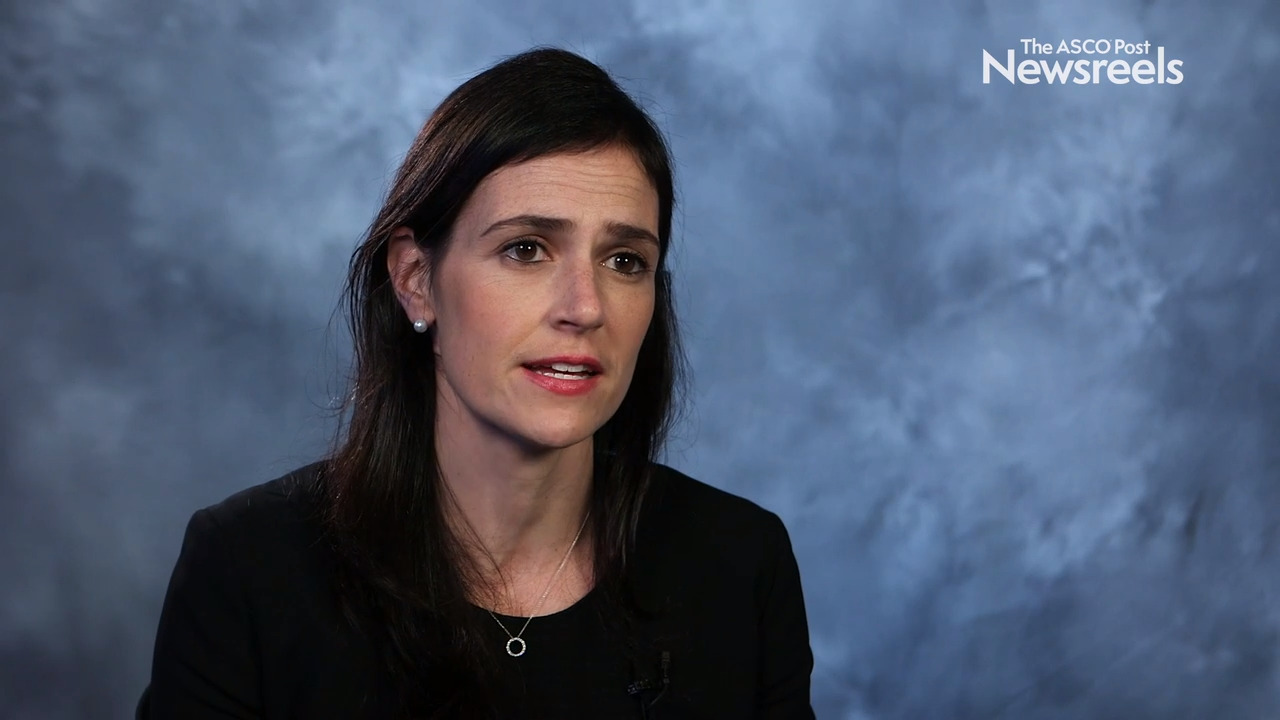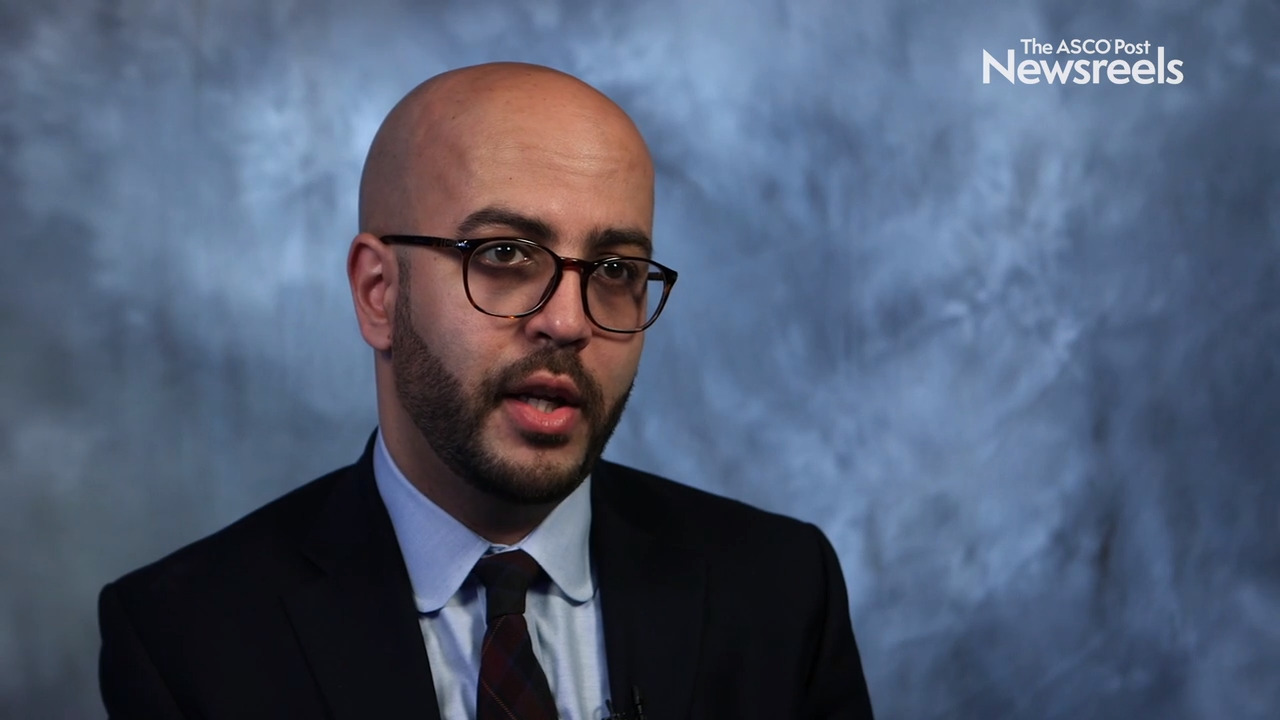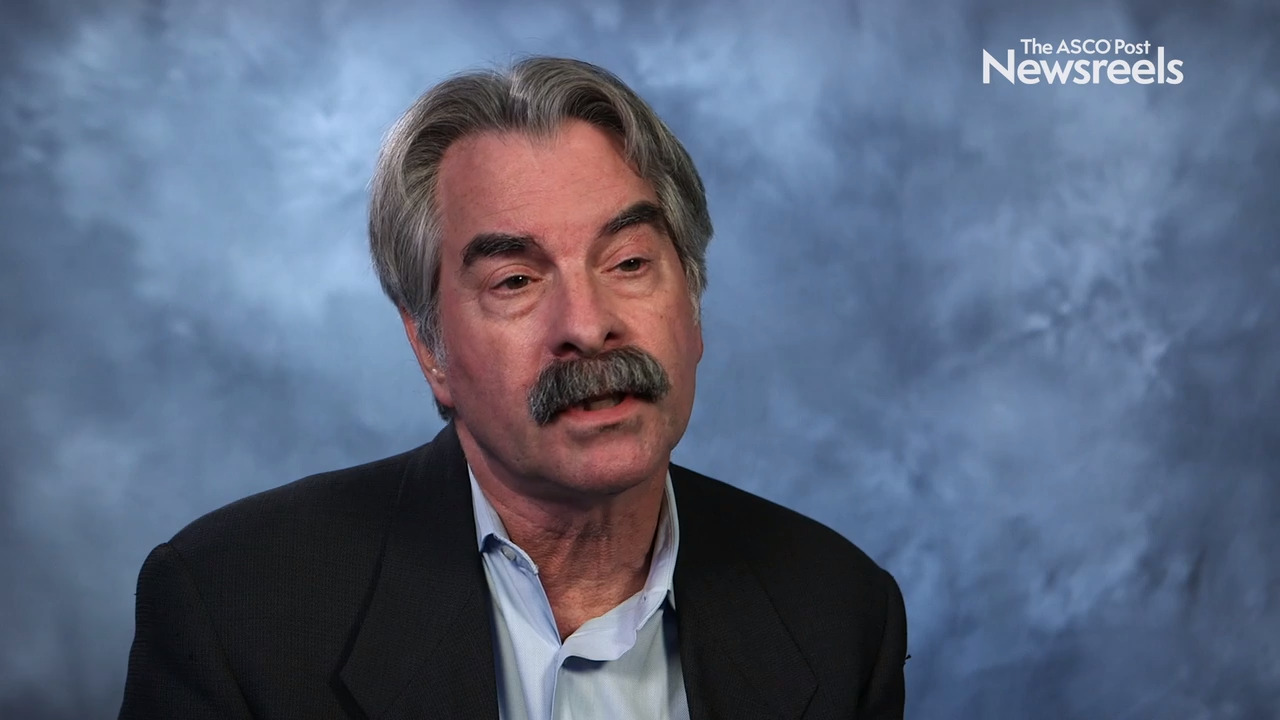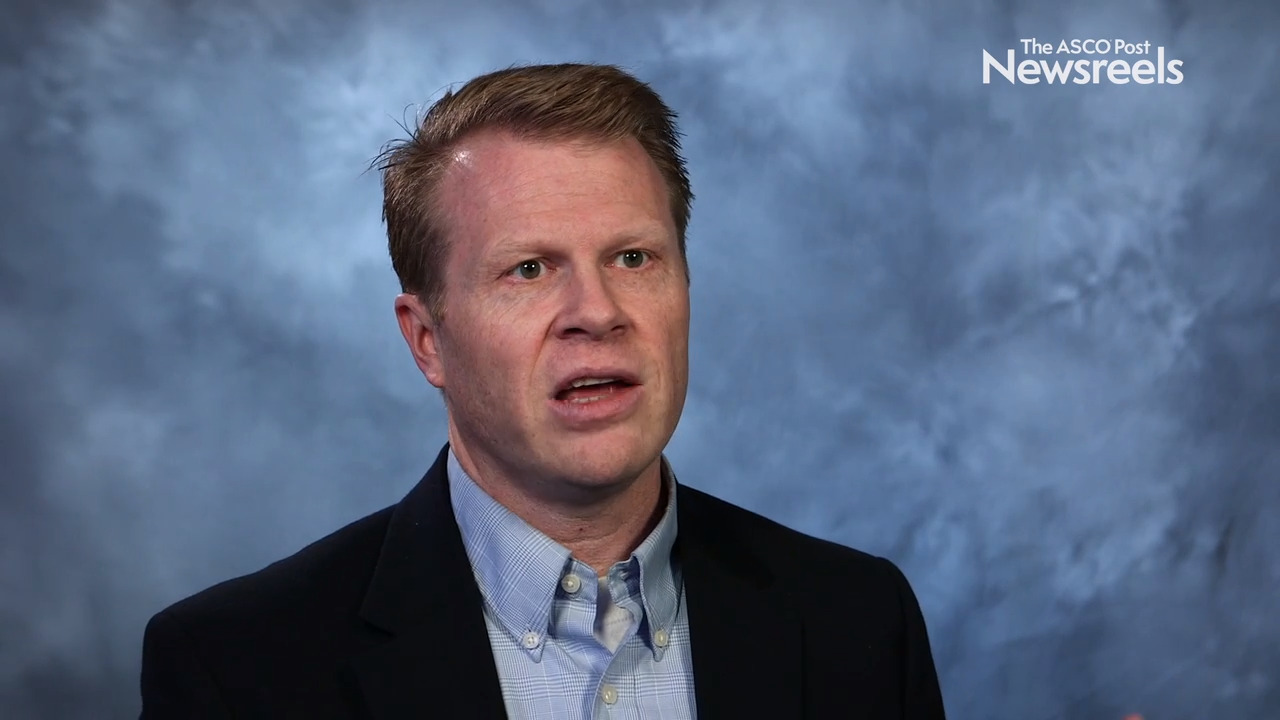C. Ola Landgren, MD, PhD, on Carfilzomib, Lenalidomide, Dexamethasone, and Daratumumab for Newly Diagnosed Multiple Myeloma
2019 ASH Annual Meeting & Exposition
C. Ola Landgren, MD, PhD, of Memorial Sloan Kettering Cancer Center, discusses phase II study findings that showed an 83% negative rate of minimal residual disease in newly diagnosed multiple myeloma treated weekly with 8 cycles of the quadruplet regimen of carfilzomib/lenalidomide/dexamethasone/daratumumab, without autologous stem cell transplant (Abstract 862).
Edward A. Stadtmauer, MD, of the University of Pennsylvania Abramson Cancer Center, discusses phase I results of immune cells, modified with CRISPR/Cas9 technology, and infused in three patients (two with multiple myeloma and one with sarcoma). Researchers observed the cells expand and bind to their tumor targets with no serious side effects (Abstract 49).
Jennifer Crombie, MD, of Dana-Farber Cancer Institute, discusses early study results which showed that duvelisib plus venetoclax showed activity in patients with relapsed or refractory chronic lymphocytic leukemia/small lymphocytic lymphoma, with no dose-limiting toxicities observed (Abstract 1763).
Mark Bustoros, MD, of Dana-Farber Cancer Institute, discusses phase II study results showing that the combination of ixazomib, lenalidomide, and dexamethasone is effective in patients with high-risk smoldering disease, with a high response rate, convenient schedule, and manageable toxicity. Longer follow-up for disease outcome is ongoing (Abstract 580).
Jerald P. Radich, MD, of the Fred Hutchinson Cancer Research Center, discusses a gene-expression model that distinguishes patients with chronic myeloid leukemia who achieved a deep molecular response from those with a poor response to treatment. This work could yield new therapeutic targets that could potentially turn a poor responder into a good responder who might even achieve treatment-free remission (Abstract 665).
Tait D. Shanafelt, MD, of Stanford University, discusses extended follow-up data that show ibrutinib plus rituximab improved clinical outcomes vs the standard therapy of fludarabine/cyclophosphamide/ rituximab in younger patients with previously untreated chronic lymphocytic leukemia (Abstract 33).
